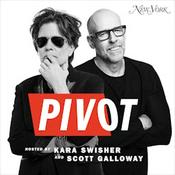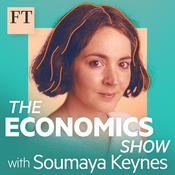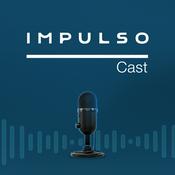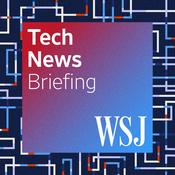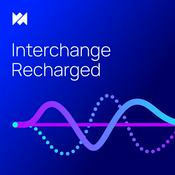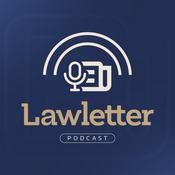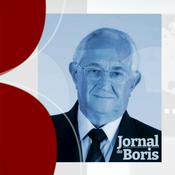2314 episódios
From 1.16 BillionReactive Logs A Day To Proactive Insight: Storio Group And Dynatrace
22/2/2026 | 25minHow do you protect millions in revenue during your busiest hour of the year when your entire business depends on digital performance?
At Perform 2026, I caught up with Alex Hibbitt, Engineering Director responsible for the customer platform at Storio Group, to unpack what happens when observability moves from an engineering afterthought to a board-level priority. Storio Group was formed from the merger of Photobox and Albelli, bringing together multiple brands and five separate e-commerce platforms into one unified customer journey. That consolidation created opportunity, but it also exposed risk, especially during peak trading from Black Friday through Black Sunday and into the Christmas rush.
Alex shared what it really looks like when downtime is non-negotiable. At peak, Storio's platform can generate up to 1.5 million euros per hour. A single poorly timed incident is not simply a technical problem, it is a direct threat to revenue and customer trust. Before partnering with Dynatrace, the team was relying heavily on centralized logging, processing over a billion log lines a day and depending on engineers to manually interpret signals. It was reactive, labor intensive, and left too much to chance.
What stood out for me was how cultural change led the transformation. Rather than imposing a new tool from the top down, Alex and his team built a maturity model engineers could relate to, created internal champions, and framed observability as risk management and business protection. The result was a reported 65 to 70 percent reduction in log costs, a 50 percent drop in mean time to detect overall, and up to 90 percent improvement for the most severe incidents.
We also explored how unifying logs, metrics, and traces into a single AI-driven platform helped Storio move from reactive firefighting to proactive detection. During one Black Sunday alone, three major issues were identified early enough to avoid an estimated 4.5 million euros in potential impact.
This conversation goes beyond tooling. It is about protecting customer experience, safeguarding revenue during peak demand, and building an engineering culture that embraces change. If your organization is wrestling with cloud costs, fragmented monitoring, or the pressure to deliver flawless digital performance under load, there are some powerful lessons here.- *]:pointer-events-auto scroll-mt-(--header-height)" dir="auto" tabindex="-1" data-turn-id= "3c98e6f5-1dbf-46a0-be22-7f5411922664" data-testid= "conversation-turn-1" data-scroll-anchor="false" data-turn="user"> *]:pointer-events-auto scroll-mt-[calc(var(--header-height)+min(200px,max(70px,20svh)))]" dir="auto" tabindex="-1" data-turn-id= "request-WEB:d2d484c3-b4bf-41d3-90b0-9faafbd8dc01-0" data-testid= "conversation-turn-2" data-scroll-anchor="true" data-turn= "assistant"> How do you design financial infrastructure that keeps running when the unexpected hits, whether that is a regional outage, a regulatory shift, or a sudden spike in digital demand?
In this episode of Tech Talks Daily, I'm joined by Katsutoshi Itoh from Sony and Masahisa Kawashima from NTT, both representing the IOWN Global Forum, to unpack how photonics-based networks could change the foundations of digital finance. Speaking with me from Kyoto, they share how the Innovative Optical and Wireless Network vision is moving beyond theory and into practical, finance-specific use cases.
Financial institutions are under constant pressure to deliver uninterrupted services while meeting ever tighter compliance standards. Yet as we discuss, many existing architectures still rely on asynchronous data replication and layered resilience added after the fact. On paper, it works. In a real disruption, gaps quickly appear. Itoh and Kawashima explain how synchronous replication over ultra-low latency optical networks can reduce the risk of data loss while simplifying disaster recovery and lowering operational complexity.
We also explore the role of Open All-Photonic Networks and why reducing packet forwarding layers can dramatically cut latency and infrastructure costs. Instead of concentrating compute and storage in dense urban data centers, photonics enables distributed computing across regions while maintaining deterministic performance. That shift opens the door to improved resilience, better infrastructure utilization, and new approaches to scaling without constant over-provisioning.
Sustainability sits alongside resilience in this conversation. Rather than treating energy efficiency as a compromise, the IOWN vision distributes power demand geographically, making better use of locally available renewable energy and reducing concentrated load pressures. It is a subtle but important rethink of how infrastructure supports broader societal goals.
Looking ahead, we consider what this could mean for digital banking platforms, AI-driven risk management, and cross-border financial services. If infrastructure limitations fall away, institutions can design services around business needs rather than technical constraints.
If you are curious about how photonics could underpin the next generation of financial services, this episode offers a grounded and thoughtful perspective. As always, I would love to hear your thoughts after listening. - Have you ever wondered why "compliance" still gets treated like a slow, spreadsheet-heavy chore, even though the rest of the business is moving at machine speed?
In this episode of Tech Talks Daily, I sit down with Matt Hillary, Chief Information Security Officer at Drata, to talk about what actually changes when AI and automation land in the middle of governance, risk, and compliance. Matt brings a rare viewpoint because he lives this day-to-day as "customer zero," running Drata internally while also leading IT, security, GRC, and enterprise apps.
We get practical fast. Matt shares how AI-assisted questionnaire workflows can turn a 120-question security assessment from a late-afternoon time sink into something you can complete with confidence in minutes, then still make it upstairs in time for dinner. He also explains how automation flips the audit dynamic by moving from random sampling to continuous, full-population checks, using APIs to validate evidence at scale, without hounding control owners unless something is actually wrong.
We also talk about what security leadership really looks like when the stakes rise. Matt reflects on lessons from his time at AWS, why curiosity and adaptability matter when the "canvas" keeps changing, and how customer focus becomes the foundation of trust. That theme runs through the whole conversation, including the idea that the CISO role is steadily turning into a chief trust officer role, where integrity, transparency, and credibility under pressure matter as much as tooling.
And because burnout is never far away in security, we dig into the human side too. Matt unpacks how automation can reduce cognitive load, but also warns about swapping one kind of pressure for another, especially when teams get trapped producing endless dashboards and vanity metrics instead of focusing on the few measures that actually reduce risk.
To wrap things up, Matt leaves a song for the playlist, Illenium's "You're Alive," plus a book recommendation, "Lessons from the Front Lines, Insights from a Cybersecurity Career" by Asaf Karen, which he says stands out for how it treats the human side of security leadership. If you're thinking about modernizing compliance in 2026 without losing the human element, his parting principle is simple and powerful: be intentional, keep asking why, and spend your limited time on what truly matters.
So where do you land on this shift toward continuous trust, do you see it becoming the default expectation for buyers and auditors, and what should leaders do now to make sure automation reduces pressure instead of quietly adding more? Share your thoughts with me, I'd love to hear how you're approaching it. - Can designing for human error become the strongest cybersecurity strategy in an AI-accelerated world?
In this episode, I sit down with Yaz Bekkar, Principal Consulting Architect for Barracuda XDR and a member of the company's Office of the CTO, to explore why the speed introduced by AI is changing the risk equation for every organization. As automation allows teams to move faster, it also means small mistakes can scale at machine speed. Yaz argues that resilience in 2026 is no longer about trying to prevent every incident. It is about anticipating failure, containing the blast radius, and recovering quickly without bringing the business to a standstill.
Our conversation challenges one of the most persistent narratives in security, the idea that people are the weakest link. Yaz explains why safeguarding the workforce begins with reshaping the environment they operate in. When the secure option is also the easiest and fastest path, risky shortcuts begin to disappear. From secure defaults and least-privilege access to paved-road workflows for administrators, he shares practical examples of how organizations can reduce complexity, limit exposure, and support better decisions under pressure.
We also tackle the limits of annual compliance training and the cultural shift required to build real cyber resilience. Yaz makes the case for continuous, bite-sized practice embedded into everyday work, from three-minute phishing simulations that teach without blame to short, hands-on misconfiguration drills for technical teams. The result is stronger habits, faster response times, and a security posture designed for real human behavior rather than ideal conditions.
If AI is accelerating both innovation and risk, how do leaders move from a prevention-only mindset to resilient operations that protect business continuity when controls fail? And what would change in your organization if every system was designed with the assumption that someone, somewhere, will eventually make a mistake? - At Davos this year, some of the biggest names in tech sent a clear signal. AI is no longer a novelty. It is no longer a proof-of-concept exercise. As Demis Hassabis of Google DeepMind suggested, AI will shape more meaningful work. And Satya Nadella of Microsoft was even more direct. AI only matters if it improves real outcomes for people.
So what does that look like inside the enterprise?
In this episode of Tech Talks Daily, I'm joined by Andrew Boyagi, Customer CTO at Atlassian, to unpack how the conversation has shifted from experimentation to execution. Developers, in many ways, are the perfect lens for understanding this moment. Over the last two decades, their role has expanded far beyond writing code. They now own products, infrastructure, operations, and business outcomes. AI is simply the next chapter in that evolution.
Andrew argues that AI will not replace engineers. It will raise expectations. As intelligent tools absorb repetitive work, the real value moves up the stack. System design. Architectural thinking. Reviewing and refining AI-generated output and orchestrating solutions that solve genuine business problems. And through it all, humans remain firmly in the loop.
We also explore what this means for leadership, why mindset is starting to matter more than technical skill alone, how organizations can avoid layering AI on top of broken processes. And why the companies pulling ahead are treating AI as a strategic discipline, not a feature upgrade.
This is a conversation grounded in reality. It speaks to product leaders, CTOs, CIOs, and anyone asking a simple but powerful question. If we are investing in AI, what are we actually getting back? And before we close, we look ahead to Team '26 and the themes Andrew and his team are already working on.
If this year has been about proving value, what will the next chapter demand from enterprise leaders? As always, I'd love to hear your thoughts. Are you seeing proof of value in your organization yet, or are you still working through the pilot phase?
Mais podcasts de Notícias
Podcasts em tendência em Notícias
Sobre Tech Talks Daily
If every company is now a tech company and digital transformation is a journey rather than a destination, how do you keep up with the relentless pace of technological change?
Every day, Tech Talks Daily brings you insights from the brightest minds in tech, business, and innovation, breaking down complex ideas into clear, actionable takeaways.
Hosted by Neil C. Hughes, Tech Talks Daily explores how emerging technologies such as AI, cybersecurity, cloud computing, fintech, quantum computing, Web3, and more are shaping industries and solving real-world challenges in modern businesses.
Through candid conversations with industry leaders, CEOs, Fortune 500 executives, startup founders, and even the occasional celebrity, Tech Talks Daily uncovers the trends driving digital transformation and the strategies behind successful tech adoption. But this isn't just about buzzwords.
We go beyond the hype to demystify the biggest tech trends and determine their real-world impact. From cybersecurity and blockchain to AI sovereignty, robotics, and post-quantum cryptography, we explore the measurable difference these innovations can make.
Whether improving security, enhancing customer experiences, or driving business growth, we also investigate the ROI of cutting-edge tech projects, asking the tough questions about what works, what doesn't, and how businesses can maximize their investments.
Whether you're a business leader, IT professional, or simply curious about technology's role in our lives, you'll find engaging discussions that challenge perspectives, share diverse viewpoints, and spark new ideas.
New episodes are released daily, 365 days a year, breaking down complex ideas into clear, actionable takeaways around technology and the future of business.
Site de podcastOuça Tech Talks Daily, Boletim Folha e muitos outros podcasts de todo o mundo com o aplicativo o radio.net
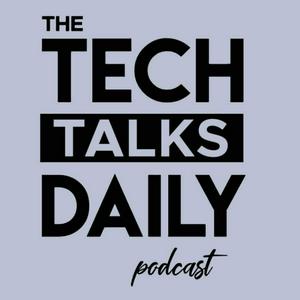
Obtenha o aplicativo gratuito radio.net
- Guardar rádios e podcasts favoritos
- Transmissão via Wi-Fi ou Bluetooth
- Carplay & Android Audo compatìvel
- E ainda mais funções
Obtenha o aplicativo gratuito radio.net
- Guardar rádios e podcasts favoritos
- Transmissão via Wi-Fi ou Bluetooth
- Carplay & Android Audo compatìvel
- E ainda mais funções


Tech Talks Daily
Leia o código,
baixe o aplicativo,
ouça.
baixe o aplicativo,
ouça.















